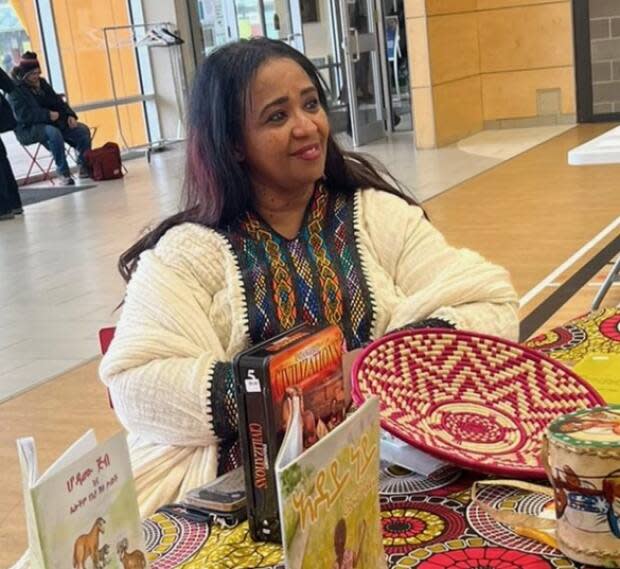
A new report says interviews with Edmonton immigrant and refugee families reveal an early learning and childcare system that is not friendly to newcomers’ languages and cultures.
The stories shared in the report draw attention to the struggles ethnic families experience in accessing childcare and make the case for embracing the cultural wealth of ethnic families in Edmonton.
«We can start seeing early signs of not wanting to use their home language or feeling embarrassed or feeling not proud, instead of feeling really proud and thinking like, ‘This is part of who I am and a really important part that I can bring to my classroom,'» Andrea McLeod, a professor at the University of Alberta and head of the Multilingual Families Lab, said at the report launch Tuesday at Boyle Street Plaza.
Researchers from a community-university partnership between the University of Alberta and the Multicultural Health Brokers Cooperative interviewed 30 parents to produce the report, titled Journeys Through Early Learning and Childcare in Edmonton: The Experiences of Ethnocultural Families.
Stories shared ‘pulled at my heart’: expert
Participants included Bhutanese, Chinese-speaking, Eritrean, Ethiopian, Filipino, Kurdish-speaking, Somali and Spanish-speaking communities.
Ethnic parents interviewed said they felt isolated and wanted to be more involved in their children’s education from daycare to early learning, but faced barriers like not being able to speak English.
«The experiences and the stories that the women shared just pulled at my heart,» Annalise Yuzda, vice-president of childcare for the YMCA of Northern Alberta said.
«It’s so hard just being a parent, but being a parent with all those barriers, with a language barrier, not being able to access subsidy, not knowing how to navigate the system, not having a community to back you, I just can’t imagine that,» Yuzda said.
«And that’s not the way to start their lives in Canada.»
Yvonne Chui, executive director of the Multicultural Health Brokers Cooperative, said the goal of the report is to influence the entire early learning and childcare sector in Edmonton.
«Perhaps even influence policy makers, perhaps within government to really look at how ethnocultural families and parents and children are more than users of services,» Chui said.
«They are the co-creators of culturally-honouring responsive early learning and care for all children, all families to enjoy.»
McLeod said the prospect of creating space in early childhood education and childcare centres for multiculturalism is exciting.
«So instead of seeing a family that doesn’t speak fluent English as a burden, instead seeing that family as having so many resources and richness that they can share with us,» she said.
Sabah Tahir has been working with the brokers cooperative for more than 20 years. Tahir showcased «orange play» at the event, an early learning game involving songs and activities with orange peels that she experienced as a child in Iraq.
«Just like a tree, you know, it’s very important for people to keep their roots,» Tahir said.
«It is good for adapting. It is good for inclusiveness, and it’s good for a good identity.»
Tigist Dafia displayed books and cultural items from the Eritrean and Ethiopian communities, representing that community’s journey to being part of Edmonton’s early learning programs.
«Not being able to understand the system, it takes a while, right?» Dafia said.
«It’s very heartbreaking because many of the refugees and immigrants are coming here from far, far, far away to make their children’s life better and when that’s not happening that is really heartbreaking and they then question is it even the right place for my children and myself?»
SOURCE: CBC